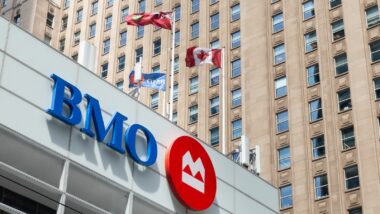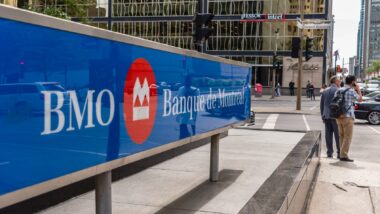Top Class Actions’s website and social media posts use affiliate links. If you make a purchase using such links, we may receive a commission, but it will not result in any additional charges to you. Please review our Affiliate Link Disclosure for more information.
A group of law firms announced that a price-fixing conspiracy class action lawsuit alleging a scheme to inflate costs related to foreign currency exchange was certified by the Ontario Superior Court of Justice.
The class action lawsuit alleges that dozens of banks and financial institutions took part in a conspiracy to control the market for foreign currency, known as the “FX Market.” According to one of the law firms representing the plaintiffs, the goal of the conspiracy is to “fix, maintain, control, prevent, lessen, eliminate, or unduly lessen the supply of foreign currencies on the FX Market.”
“Beginning at least as early as 2003 and continuing through 2013, it is alleged that the Defendants conspired with each other to fix prices in the FX market,” states the law firm’s website detailing the price-fixing conspiracy class action lawsuit. “Through the daily use of multiple chat rooms with revealing names such as ‘The Cartel,’ ‘The Bandits’ Club,’ and ‘The Mafia,’ the Defendants communicated directly with each other to coordinate…”
The price-fixing conspiracy class action lawsuit was filed in Ontario on behalf of the trustees of the Labourers’ Pension Fund of Central and Eastern Canada. The defendants include major banks, such as the Royal Bank of Canada, CitiBank, and Barclays, as well as financial institutions, such as Goldman Sachs, J.P. Morgan, and Morgan Stanley.
The price-fixing conspiracy class action lawsuit alleges that these banks and financial institutions communicated directly with one another to fix spot prices, manipulate FX benchmark rates, and to exchange confidential consumer information to trigger client stop loss and limit orders. The defendants allegedly did this by creating exclusive interbank chat rooms to engage in unlawful price-fixing activities regarding foreign currency exchange, including:
- Coordinating trading strategies to includes foreign currency exchange rates
- Using code names and deliberately misspelling word in interbank communications in an effort to avoid detection
- Effecting agreements to hold off the purchase or sale of currency in order to benefit others involved in the price-fixing scheme
- Improperly sharing confidential client information, as well as proprietary trading information
The price-fixing conspiracy class action lawsuit was initially filed in 2015. Since then, several defendants have agreed to settle the allegations, including Bank of America, UBS, JP Morgan, Goldman Sachs, and Bank of Tokyo.
In a decision issued April 14, 2020, Justice Perell certified the class action lawsuit against non-settling defendants. According to the order, the Class includes “[a]ll persons in Canada who, between January 1, 2003 and December 31, 2013…entered into an FX Instrument transaction with a named Defendant’s salesperson either directly or through an intermediary.”
“To understand these Reasons for Decision, it should be immediately appreciated that this Class Definition defines a class membership that is enormous, but which is substantially smaller than the ginormous size class membership sought by the Plaintiffs,” notes Justice Perell in the order, noting that the following were removed from the Class under the certification order:
- Those who used the defendants’ proprietary electronic trading platforms to purchase foreign currency exchange instruments
- Those who entered into foreign currency exchange instrument transactions with banks that are not defendants in the class action lawsuit
- Indirect purchasers, or those who entered into foreign currency transactions indirectly.
The FX market price-fixing conspiracy class action lawsuit originally sought $1 billion in damages, according to a press release issued by the law firms representing the plaintiffs. The press release noted that the U.S. Department of Justice was investigating some of the defendants regarding their activity in the FX market.
According to the class action lawsuit, the defendants named in the suit control the vast majority of the Canadian domestic foreign currency exchange market. The plaintiffs contended that the defendants engaged in schemes to buy low and sell high, to their benefit, when it came to simple exchanges of money, known as the spot market. For the customer, it is better to have a “narrower spread,” noted the original complaint, or to purchase foreign currencies at lower prices and sell them at higher prices.
“The defendants conspired to fix spot prices, including in respect of USD/CAD, by agreeing to artificially widen spreads quoted to customers,” alleges the class action lawsuit. “As part of their efforts to coordinate the spreads quoted to customers, defendants engaged in thousands of communications about FX spreads.”
The complaint accused the banks and other financial institutions that were allegedly part of the price-fixing scheme of civil conspiracy, and unjust enrichment, and causing Canadian investors loss and damages under Canada’s Competition Act.
Have you participated in the foreign currency market since 2003? Do you think you are a Class Member in the FX market price-fixing conspiracy class action lawsuit? Let us know in the comment section below!
The lead plaintiffs and Class Members are represented by the law firms of Koskie Minsky LLP, Sotos LLP, and Siskinds LLP.
The FX Market Price-Fixing Conspiracy Class Action Lawsuit is Mancinelli, et al. v. Royal Bank of Canada, et al., Case No. CV-15-536174-00CP in the Ontario Superior Court of Justice, Canada.
ATTORNEY ADVERTISING
Top Class Actions is a Proud Member of the American Bar Association
LEGAL INFORMATION IS NOT LEGAL ADVICE
Top Class Actions Legal Statement
©2008 – 2024 Top Class Actions® LLC
Various Trademarks held by their respective owners
This website is not intended for viewing or usage by European Union citizens.


















